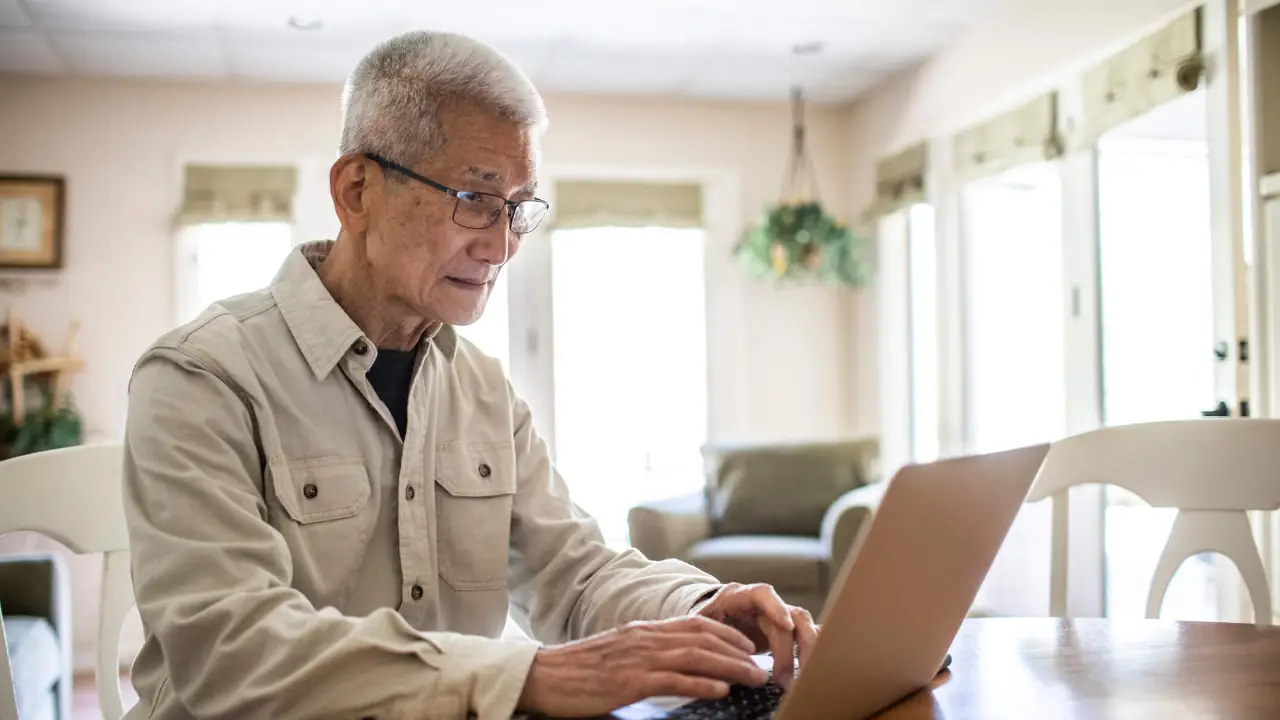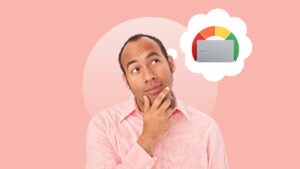Best credit cards with buy now, pay later options




Key takeaways
- Buy now, pay later (BNPL) offers let consumers spread out the payments for their purchases over a set period of time, sometimes with no interest.
- Some BNPL options charge a set plan fee instead of interest, although these fees and the way they're calculated can vary widely.
- Instead of BNPL options, consumers can also consider 0 percent APR credit cards to pay down large purchases over time.
If you’ve noticed more “buy now, pay later” options available when shopping for purchases online, you’re definitely not imagining it. The fact is, more and more companies have moved into the buy now, pay later (BNPL) space over the last few years, including major credit card issuers and third-party financial firms. Ultimately, this has led to more consumers financing their spending over several months or longer, with or without a credit card to help.
That said, there are definitely some pros and cons that come with buy now, pay later (BNPL) options when you compare using a line of credit for spending the way you normally would. Read on to find out which buy now, pay later options are out there, how they work and what to consider before you take advantage.
What are buy now, pay later plans?
- The estimated value of the global buy now pay later market grew to $129.7 billion in 2022. This market is expected to increase at a CAGR of 49.7 percent through 2030. (xResearch)
- The median sum of consumer-reported BNPL purchases was $1,000 between Q1 2021 and Q1 2022. (Consumer Financial Protection Bureau)
- BNPL users are considerably more likely to be using credit cards, payday loans and other high-interest loans for their purchases. (Consumer Financial Protection Bureau)
- 72 percent of consumers think BNPL options can help them with budgeting. (Mastercard)
Buy now, pay later (BNPL) is exactly what it sounds like. Rather than paying for the entire cost of an item upon purchasing it, you pay for it in monthly installments. Some credit card issuers offer their own BNPL services, though independent BNPL companies exist.
The structure of BNPL programs can vary quite a bit. Usually, the plan is interest-free for a standard timeline of four installments; thereafter, customers have to pay interest. However, some payment plans can be longer or late payments can extend the terms.
“With buy now, pay later, customers are much more responsive to making payments because, in their mind, they’re tying the payment to whatever it is that they bought. However, when they buy that exact same thing with a credit card, emotionally, they’re not paying for that item—they’re paying their credit card,” said Rhett Roberts, CEO of LoanPro, a loan software company that has studied consumers’ emotional connection to BNPL services versus credit card payments.
For the most part, BNPL payment options are intended for people who want to spread out the financial cost of their purchases for a specific length of time. This can make financing items feel more “predictable” since monthly payments are typically fixed for the term of the BNPL agreement.
'If you’re looking to delay payment by a month or two, you put it on your credit card, but people who are looking for buy now, pay later services are looking for extensions beyond that.'— Marwan Forzley, CEO of Veem
Credit card installment plans
With the rise of independent BNPL companies, credit card issuers and brands are following suit with installment plans of their own. The chart below provides an overview of the major credit card issuer BNPL plans available right now, as well as their minimum purchase requirements for these plans to apply.
| Credit card features that function like buy now, pay later | Minimum purchase amount |
|---|---|
| American Express Plan It | $100 |
| Citi Flex Pay | $75 |
| My Chase Plan | $100 |
| U.S. Bank ExtendPay | $100 |
| Apple Card monthly installments | Not disclosed |
| Barclays Easy Pay | Varies |
| Visa Installments | Varies |
| Mastercard Installments | Varies |
Best for flexible term options: American Express Plan It
Plan It is a program from American Express that allows you to choose up to 10 qualifying credit card purchases of more than $100 that you can break up into monthly installments.
You’ll have the option of three different terms that include the monthly payment, how many months you have to pay it off and any associated monthly fee based on the size of the purchase and your credit history. You also have the option to roll all 10 purchases into one separate balance and pay that in installments as well.
Pros
- Plan It is bundled with another program from American Express, Pay It, which offers the ability to pay off small purchases of under $100 throughout the month, reducing your total balance.
- With the Plan It feature, cardholders pay a fixed monthly fee for their installment plan. This can make it easier to budget and plan for payments.
Cons
- Some purchases are not eligible for Plan It, including those with foreign transaction fees.
- While the fixed monthly fee is a convenient aspect of Plan It, additional fees could apply.
Best for Amazon.com users: Citi Flex Pay
Like American Express, Citi also offers an installment plan service for purchases of $75 and or more called Flex Pay. Qualified Citi cardholders can either choose an eligible item they’ve already purchased or select Flex Pay when using their Citi credit card at checkout on Amazon. Citi discloses the terms of each plan, including duration, minimum payment and separate interest rate when you select Flex Pay.
Pros
- You can use Citi Flex Pay for Amazon purchases of $50 or more.
- If your eligible card is a rewards card, you can continue to earn rewards on purchases when using Citi Flex Pay.
Cons
- Not all purchases may be eligible for the installment plan.
- Citi Flex Pay may include a fixed fee or a percentage of the transaction amount.
Best for no interest: My Chase Plan
My Chase Plan is another buy now, pay later option exclusively for Chase credit cards. This plan lets you pay off purchases of $100 or more over a fixed payment term with no interest and only a fixed plan fee.
Chase customers who use My Chase Plan to pay down purchases will still earn rewards for their spending, and they can start a plan on their online account any time they make an eligible purchase.
Pros:
- My Chase Plan doesn’t charge interest, only a small fixed monthly fee until you’ve paid off the purchase.
- You can use “Calculate a My Chase Plan” to see an example of your plan before enrolling a purchase.
Cons:
- You can’t group purchases together like you can with other plans, limiting My Chase Plan’s flexibility.
- While it may be less expensive than monthly interest charges, the fixed monthly fee still adds to your payoff amount.
Best for long-term payment plans: U.S. Bank ExtendPay
Like many of the other BNPL options available through credit cards, U.S. Bank ExtendPay lets users pay down purchases of $100 or more with fixed monthly payments and no interest for a set repayment period. Instead of interest, U.S. Bank ExtendPay charges a small, fixed plan fee. Payment plans can be for three to 24 months.
Pros
- U.S. Bank ExtendPay doesn’t have an application process or credit check.
- You can still earn rewards on your ExtendPay purchases.
Cons
- You have to be invited to be able to use U.S. Bank ExtendPay.
- Only up to 50 percent of your credit line can be used for ExtendPay purchases.
Best for virtual wallet users: Apple Card monthly installments
The Apple Card offers monthly installments when you use it to pay for Apple products at Apple.com, the Apple Store app or a physical Apple Store. The terms can be as long as 24 months with no interest, and the selected plan can be viewed in your Apple Wallet.
Pros
- Using the Apple Card’s buy now, pay later installment plan allows you to make interest-free payments on your eligible purchases over time.
- Since the Apple Card is tied to your iPhone, your monthly installment payment is seamlessly integrated into the Wallet and into your minimum credit card payment.
Cons
- You have to have an Apple ID account in order to apply for the card.
- When you enroll in the installment plan, the total amount of your purchase is part of your credit utilization ratio.
Best for everyday retail shoppers: Barclays Easy Pay
Barclays also offers a BNPL option on its credit cards known as Easy Pay. This promotion can apply to various purchases as determined by Barclays, although it doesn’t disclose its payment plans, minimum purchase requirements or other details online. Instead, “details of the APR and the promotional repayment terms for any available Easy Pay Offer will be described in the specific offer.”
Pros
- The app has a payment planner tool to make it easier to view your options, schedule payments and more.
- There is no monthly fee to use Barclay Easy Pay.
Cons
- Barclays charges interest on purchases in its Easy Pay Plans.
- You can’t pick and choose which purchases are eligible for Easy Pay Plans.
Best for Commerce Bank cardholders: Visa Installments
Visa Installments is a Visa plugin available at checkout at select participating online retailers that allows you to pay for purchases in equal monthly installments. If the retailer is offering it — and it’s available on your card — you can select your plan before purchase, at checkout before completing your purchase or post-purchase.
Pros
- You can easily manage installment plans through your existing Visa account.
- This allows you to select your plan before, during or after purchasing.
Cons
- Just one credit card issuer (Commerce Bank) offers Visa Installments on its cards.
- Visa only has a few participating retailers that accept Visa Installments.
Best for accessibility: Mastercard Installments
Mastercard Installments launched in 2022. Through this program, Mastercard issuers invite their customers to sign up with their existing cards. The terms of the payment plans offered (including the timeframe, payment amount and whether interest is charged) are set by the issuer and presented to the cardholder either at the payment terminal or at checkout.
Pros
- You can get instant approval online or in-store at checkout.
- You have zero liability protection, so you can dispute charges if an installment plan was set up fraudulently.
Cons
- Only a few lenders have partnered with Mastercard for its installment plan feature.
- Terms that are longer than four equal payments will result in interest charges.
BNPL alternatives: 0% APR credit cards or independent BNPL services
Another way to obtain an interest-free extended payment window is to use an independent service or a credit card that offers a 0 percent introductory APR. The best zero-interest credit cards offer 18 months or longer before the regular interest rate kicks in. Plus, you can build credit and some cards earn rewards — a perk you won’t get with traditional BNPL services.
Here are a few of the best credit cards can can be an alternative to BNPL:
- U.S. Bank Visa® Platinum Card
- Wells Fargo Reflect® Card
- Citi Custom Cash® Card
But if you’re looking for a more flexible payment option than what traditional credit cards offer, plenty of independent BNPL platforms are available. Generally, these independent services partner directly with specific retailers, that facilitate their BNPL offers at the point of sale.
The chart below shows the main types of BNPL offers you may see when you make a qualifying purchase, plus how their fees typically work.
| App | Cost | Google Play rating | App Store rating |
|---|---|---|---|
| Klarna | Up to four interest-free payments; Interest charged on payment plans up to 24 months | 4.6 | 4.8 |
| Affirm | Up to four interest-free payments; Interest charged on payment plans up to 12 months | 4.8 | 4.9 |
| Zip | Interest charged on monthly payments; installment fees of $0 to $7.50 can apply | 4.8 | 4.9 |
| Afterpay | Up to four interest-free payments; no fees when you pay on time | 3.8 | 4.9 |
| PayPal Credit | Up to four interest-free payments; interest charged on payment plans up to 24 months | 4.7 | 4.2 |
| PerPay | Plan costs vary | 3.8 | 4.6 |
Pros and cons of BNPL services
Paying for purchases in installments in a BNPL arrangement has its advantages and drawbacks. For example, having the option to finance purchases can make it considerably easier to overspend. At the same time, BNPL options give consumers the option to spread out the “financial pain” of purchases they absolutely need to make.
With that in mind, the key to maximizing BNPL offers lies in making sure you only use them for necessities, and not just for splurges and unnecessary spending.
“It’s never a good idea to spread out purchases just because you can,” says budgeting expert Andrea Woroch.
“Don’t lose track of what you’re spending and don’t put yourself in a predicament of not being able to make your payments,” she says. “However, if you are planning on making a big purchase you would like to use now, installment payments can be an alternative to saving money and will help you get what you need more immediately, but this should only be reserved for evaluated purchases.”

Pros
- Receive items right away without paying in full upfront
- More accessible for people new to credit
- Many plans are interest-free (for a limited time)
- Generally, there are no fees (unless payments are late)
- Some platforms offer apps to track your payments and shop for deals with affiliated retailers

Cons
- Generally, it’s a better financial habit to pay for things in full and upfront
- Interest charges and late fees can be more than a credit card’s
- Difficult to track spending if you’re paying for multiple items on different installment plans
- BNPL services don’t usually report to credit bureaus unless you default, so they can’t help your credit score but can hurt it
The bottom line
If you’re looking for an extended time period to pay for a purchase interest-free, a BNPL platform could work. This is especially true for singular, big-ticket items that you truly need right away and aren’t able to save up for over time.
Traditional credit cards are best for smaller, everyday purchases and anything else that you’re able to pay for outright. They’re also more beneficial in the long term because responsible use of credit cards can improve your credit score.
Be careful if you’re managing an installment balance while also having a credit card balance, as different interest rates and fees may apply.
*The information about the U.S. Bank Visa® Platinum Card and Citi Custom Cash® Card has been collected independently by Bankrate. The card details have not been reviewed or approved by the issuer.
Why we ask for feedback Your feedback helps us improve our content and services. It takes less than a minute to complete.
Your responses are anonymous and will only be used for improving our website.





